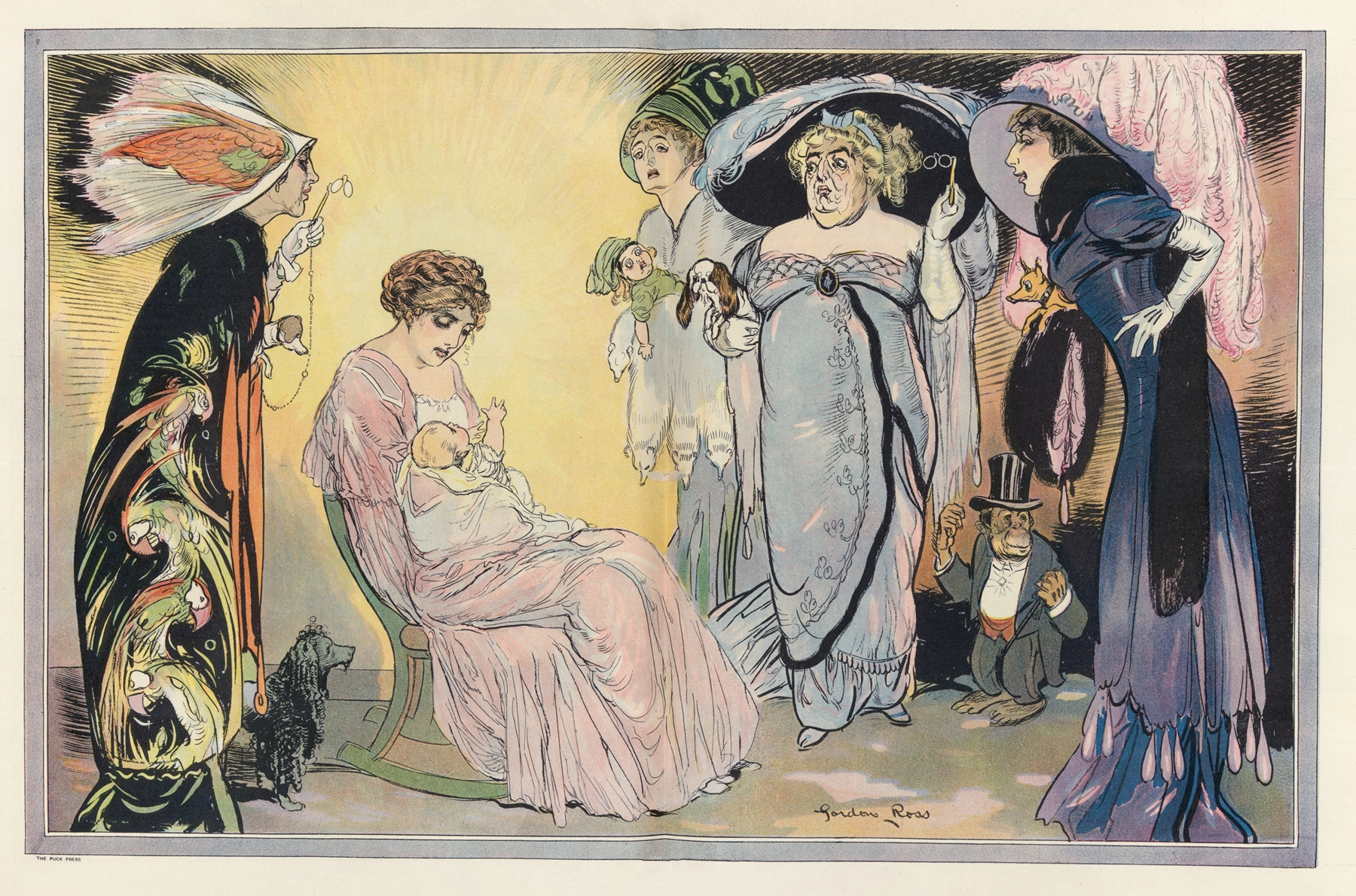Hollywood seems to be afraid of religious moms. Consider the new releases in Spring 2024, which included not only Immaculate and The First Omen—two horror movies about nuns who get pregnant as part of a dark Catholic conspiracy—but also Dune: Part Two. The plot of that film centers on a pregnant space witch who manipulates the film’s religious characters into turning her son into a messiah and tyrant. Finally, July saw the release of Longlegs, a movie about a Christian mom who kills families for a Satanist to keep the Satanist from killing her daughter.
Many horror films center on motherhood, often presenting motherhood or religious motherhood as particularly evil. Alien is famously a body horror film about pregnancy, as is Rosemary’s Baby. Christian moms show up as the primary villains or problematic characters of such classics as The Virgin Suicides (1999) and Carrie (1976). A Handmaid’s Tale (2017-present) is an entire series about a religious patriarchy that makes women into second-class citizens and forces them to give birth against their will.
This trope is true as far back as Rosemary’s Baby (1968), where Rosemary is resisting the satanic cult until she sees her demon baby, and then she’s filled with a mother’s love for him and wants to protect him. Lenore also does this in the 2009 remake of It’s Alive with her monster baby. In Don’t Worry, Darling, Bunny is the only woman who knows that the women in the idyllic town are there against their will, and she collaborates with them anyway because this world is one where her children are alive. Her children are the motivation for her betrayal of her fellow women.
These horror movies about evil moms share two particularly fascinating characteristics. First, they tend to imply that marriage and motherhood actually turn women evil. Second, this trope does not extend in the same way to men.
Making Women Evil
Hollywood has no shortage of bad fathers, to be sure, but it does not typically portray marriage or fatherhood as making these men evil. On the contrary, many films present marriage and fatherhood as making men better. Think of Tony Stark in Avengers: Endgame, Peter Pan in Hook, Jack Campbell in The Family Man, or Mr. Incredible from The Incredibles. Meanwhile, men who extol singleness are often made to look ridiculous, as in Mr. and Mrs. Smith and How I Met Your Mother. At worst, marriage and fatherhood make men incompetent, as in The Simpsons.
But when women become mothers, it’s a source of horror. As Canadian novelist and poet Heather O’Neill wrote:
Horror films depict intimately this terrifying loss of autonomy. There is something horrifying about the independent growth of a creature inside us, who cares not for your situation or personality. Women are often nine months pregnant in horror films. It heightens the tension of everything else going on when you know she might give birth at any time. Pregnancy becomes a doomsday clock, the impending birth a terrifying event.
Although numerous critics have taken note of horror films’ pregnancy-as-invasion trope, fewer have called attention to the way that these movies portray marriage and motherhood as a form of brainwashing. In Rosemary’s Baby and First Omen, for example, mothers are unable to kill their satanic children; likewise, Don’t Worry Darling’s Bunny sides with the patriarchy to keep her kids. In Dune: Part Two, it’s drinking the space worm juice while pregnant that causes Jessica to be subsumed by her dark side. In Longlegs, it’s love for her daughter that causes the villain to kill families.
The framing of pregnancy-as-alien-invasion clearly resonates with at least some women. A New York Times piece in the lead-up to Roe’s reversal depicted it as such:
This is one of the paradoxes of pregnancy: Something alien is usurping your body and sapping you of nutrition and energy, but you’re programmed to gleefully enable it and you become desperately protective of it. It’s a kind of biological brainwashing. And this often happens whether you want to be a parent or not.
It is true that women become biologically attached to their children in a way that fathers simply do not—at least not without actively choosing to do the work of caregiving. As Adrienne LaFrance writes in The Atlantic:
Oxytocin does not seem to drive nurturing behavior in men the way it does in women, Feldman and other researchers found in a study last year. Instead, a man’s parental brain is supported by a socio-cognitive network that develops in the brain of both sexes later in life, whereas women appear to have evolved to have a “brain-hormone-behavior constellation” that’s automatically primed for mothering. Another way to look at it: The blueprint for mothering behavior exists in the brain even before a woman has children.
Yet the fear portrayed in these movies spreads out wider than this. It is not just the fear of your own body turning against you but also of your fellow women turning against you. Whether it’s the nuns in Immaculate and First Omen, the handmaids in A Handmaid’s Tale, the wives in Stepford Wives or Don’t Worry Darling, or the bene gesserit of Dune: Part Two, this motif—of fellow women who are in happy relationships with men, yet who pose an existential threat to other, independent women—is overwhelmingly common.
Beyond the Movies
In our highly polarized political context, perhaps this fear of betrayal of single women by married women should not be surprising. It’s well-documented that, for women, both marriage and religion correlate with politics that swing rightward (far more so than for men). And religious people are more likely to get married and to encourage marriage in their communities. This means that when a woman gets married, she often enters a mutually reinforcing ecosystem that is pro-marriage, pro-religion, pro-parenthood, and pro-conservative. Single women may see the social and political pressure to conform to these things as patriarchal oppression, concluding that women who support them must be either enemy collaborators or brainwashed dupes. Hence these stories portraying these communities forcing women to have children they don’t want (Immaculate, First Omen), give up their free will (Stepford Wives, Don’t Worry Darling), and elevate dictators (Dune: Part Two).
The fact is, married moms are the happiest demographic in America, as Brad Wilcox documents extensively in his 2024 book Get Married. Indeed, a strong body of research demonstrates that religious and married people are happier than their non-religious, unmarried counterparts. What’s more, most people—men and women and alike—want to get married. Most women want to have more kids than they do, and most want to prioritize family over career when they have children. Depicting married moms as brainwashed is really just another way of condescending to women: telling them what they believe and why.
While Heather O’Neill certainly represents one experience of motherhood, actress Rachel McAdams, who talked about how much she loves being a mom, seems to represent the more common one.
The greatest thing that’s ever happened to me, hands down. … [People say] your life is not your own anymore. But I had 39 years of me, I was sick of me. I was so happy to put the focus on some other person. I waited a long time [for motherhood]. … I’m having more fun being a mum than I’ve ever had. Everything about it is interesting and exciting and inspiring to me. Even the tough days — there’s something delightful about them.
Instead of condescending to or fearing married moms, society would be better served by listening to them. Why do their interests and values shift so much when they marry and have children? Why do married moms want to prioritize home over career? Why would they move away from states with maternity leave benefits to states that lack such policies, but make it easier to support a family on one income?
We should also recognize the inherent misogyny of pathologizing the unique way women bond with their children. When movies like Immaculate, Rosemary’s Baby, and The First Omen portray the natural attachment that women have to their children as a weakness that must be overcome (ideally by killing the child), they are deriding one of the biggest innate differences between women and men. How is that not anti-woman?
Unfortunately, this Hollywood trope is not likely to go away anytime soon. The very fact that married moms tend to become family-oriented means that fewer of them are making movies. That leaves the filmmaking largely to men, single women, and married women who identify more with the values of their single counterparts. (This is one of the reasons for the success of faith-based films: they are one of the few industries actively courting religious married moms.)
We need more filmmakers to look at married moms and their values with curiosity rather than horror. One of the powers of mainstream entertainment is its ability to expand the cultural imagination to include experiences viewers might not otherwise understand or relate to. Hollywood should represent the full panoply of women’s experiences and values, even—perhaps especially—when many shift their focus to home life, choosing not to grab the microphone and express those values themselves.



